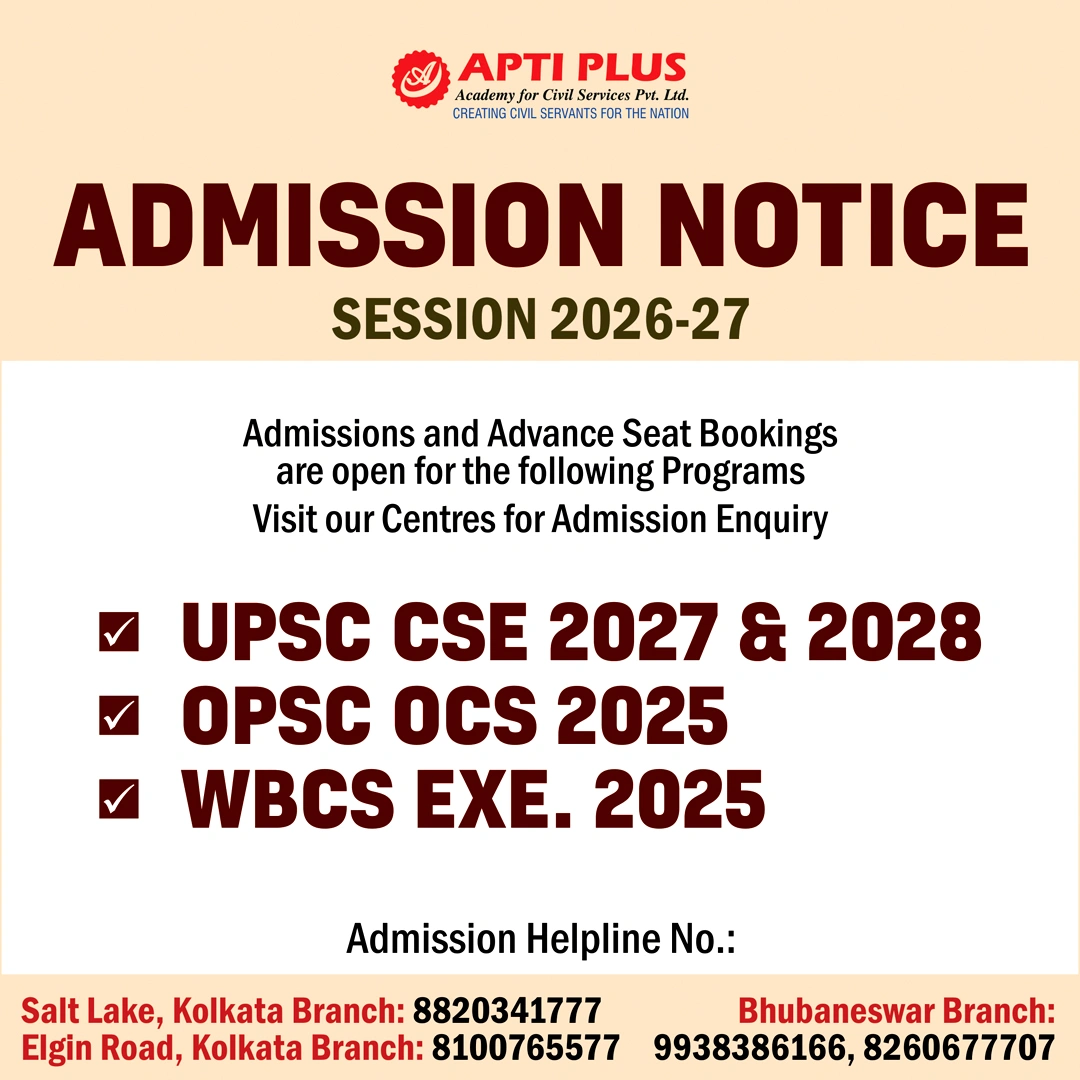The UPSC Civil Services Examination (CSE) is one of the most prestigious exams in India, known for its vast syllabus and competitive nature. And many working professionals face a dilemma: “Should I quit my job to prepare for UPSC full-time or continue working while preparing?”
The answer depends on your financial stability, preparation level and access to expert guidance.
Let’s discuss about the pros and cons of quitting your job so that you can make an informed decision.
Pros of Full-Time UPSC Preparation
Dedicated Focus on UPSC Syllabus
Quitting your job allows you to focus entirely on UPSC preparation, covering subjects like Polity, Economy, History, Geography, Environment, Ethics and daily current affairs. Full-time aspirants can allocate uninterrupted hours to study and answer writing.
Ample Time for Revision and Mock Tests
UPSC success relies heavily on answer writing skills and conceptual clarity. Full-time aspirants can revise topics multiple times, practice daily answer writing for UPSC and take regular Prelims and Mains mock tests to identify weaknesses.
Reduced Stress and Better Mental Focus
Balancing a job with UPSC preparation can be mentally exhausting. Quitting your job allows you to focus solely on your studies, reducing stress and improving retention and problem-solving skills.
Structured Guidance from Top UPSC Coaching
If you are in Kolkata or Bhubaneswar, accessing the best UPSC coaching is easier. Institutes like APTI PLUS provide comprehensive study materials, monthly magazines, test series and mentorship, which are crucial for structured preparation. Classroom programs also help maintain accountability and track progress.
Looking for the best UPSC coaching in Kolkata or Bhubaneswar? Enroll in APTI PLUS classroom program and get structured guidance today!
Cons of Quitting Your Job for UPSC
Financial Pressure
Quitting your job means losing a steady income. UPSC preparation may take 12–18 months, so it’s essential to plan your finances to cover living expenses.
Career Pause
Leaving a stable career temporarily halts professional growth. If your UPSC attempt is unsuccessful in the first year, returning to your previous job or exploring new opportunities can be challenging.
Need for Self-Discipline
Full-time preparation requires high self-discipline. Without structure, aspirants may lose focus. This is why joining a top IAS coaching institute for mentorship and test series is highly recommended.
Unsure about quitting your job? Enroll in free Demo Classes of Weekend Batch for UPSC or Online UPSC Program that allow you to prepare for UPSC effectively while working.
Hybrid Approach: UPSC Preparation While Working
A hybrid approach involves preparing for UPSC while continuing your job..in the mornings, evenings and weekends. This method balances financial stability with exam preparation but requires excellent time management.
Take the example of Jubin Mohapatra, a student of APTI PLUS, who cleared UPSC CSE 2019 with AIR 379 while continuing his full-time job. His success proves that aspirants can clear UPSC without quitting. Many other aspirants in Kolkata and Bhubaneswar have also cleared UPSC while attending weekend or hybrid classes, showing that success is achievable with strategy, right guidance, mentorship and consistent practice.
Key Takeaways
- Quitting your job is a personal decision based on financial stability, preparation level and support system.
- Full-time UPSC preparation provides focus but comes with financial and career risks.
- Hybrid or part-time preparation reduces risk but demands strong time management.
- Choosing the best UPSC coaching near you, especially in Kolkata or Bhubaneswar, increases your chances of success to a great extent.
FAQs
Q1. Can I clear UPSC while working full-time?
Yes. With structured guidance, discipline and proper time management, many aspirants, including Jubin Mohapatra (AIR 379), have cleared UPSC while working.
Q2. How long should I prepare if I quit my job?
Most aspirants take 12–18 months, but preparation duration depends on your current knowledge and learning pace.
Q3. Is classroom coaching necessary for UPSC success?
Classroom coaching provides structured learning, mentorship and test series. Institutes like APTI PLUS offer all these resources including top UPSC Faculty from Delhi, improving success chances.
Q4. Should I try a hybrid approach first?
Yes. A hybrid approach lets you assess your readiness without losing financial stability.
Q5. How do I choose the best UPSC coaching?
Look for experienced faculty, comprehensive study material, test series, mentorship and location convenience. In Kolkata or Bhubaneswar, top coaching option is easily accessible.
Conclusion
Whether to quit your job or continue working while preparing for UPSC is a personal choice. The key factors are financial readiness, self-discipline and access to structured guidance. Success stories like Jubin Mohapatra (AIR 379, UPSC 2019) prove that aspirants can succeed even while working full-time.
Take the first step toward UPSC success–Join APTI PLUS UPSC classroom or online program today and prepare with confidence!



